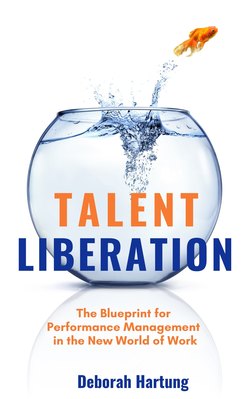Читать книгу Talent Liberation - Deborah Hartung - Страница 4
На сайте Литреса книга снята с продажи.
Fear and BS Badges of Honour
ОглавлениеCorporations have profited from fear for decades now.
Advertising and marketing agencies have helped the narrative by selling the idea of the big house and the fancy car and the fabulous vacations. Academic institutions have profited from the fear by convincing us that the only way to attain this ‘dream life’ that we are being sold, is to get a degree that is ‘worth something’ and to embark on a career and climb those corporate ladder rungs. We are discouraged from exploring our creativity or from pursuing entrepreneurship and the arts because “they don't pay well” and we all know that if you don't have a well-paying job, you are all but snookered because you can't financially afford to ‘live the dream’.
This constant fear is also to blame for the rise of what I like to call BS Badges of Honour - the unhealthy beliefs and behaviours that we have learned and rewarded for decades now. Picture that 1980's executive type working a 65-80 hour week. The manager who complains that they cannot ‘afford to take leave’ because they are somehow so integral to operations that the world will fall apart at the seams if they go and spend a week on a beach.
We have glorified working long hours and neglecting our physical and mental well-being. We have normalised burnout. We have demonised mental health challenges and created such a stigma around anything that smacks of ‘weakness’ that it is honestly a career-limiting move in most organisations to own up to battling depression or anxiety.
For decades now, we have told people to ‘leave their problems at the door’ and we have laboured under the impression that there is some kind of a distinction or a line between the employee and the person they are outside of work. We have our professional persona and then we have our life outside of work. We have spent so many years pretending that if we just maintain this corporate facade, we won’t have to deal with the implications of multi-faceted human beings who have families and financial commitments and health issues. Perhaps seeing our people as something other than complex humans has made it easier to justify our actions in the workplace and made it easier to feed the beast that is our greed and our selfishness. And of course all of us who are employees play along. We maintain the facade and apologise for having lives outside of work. We neglect our families and our health and well-being because of the axe that lingers all too obviously over our heads.
The fear keeps us silent. It keeps us subjugated. And that is exactly where and how we need to be in order to keep us in check and keep us serving the interests of our corporate masters.
It's a vicious cycle, really. We are socialised from a young age by our parents, our teachers, the church, our governments. We are told what to think and believe and we are taught that the ultimate goal is to ‘fit in’. Our need for community and belonging (thanks Maslow for making that hierarchy of needs so simple to understand) is used against us and it keeps us in check. We don't speak up for fear of being iced out by the community we so desperately crave to belong to. In the simplest terms, we don't think for ourselves and we are discouraged from doing so. And the cycle continues. We grow up. We study ‘something useful’. We get a job and climb that career ladder and chase the house and car and vacations because those are the things we have been programmed to desire and to associate with success.
